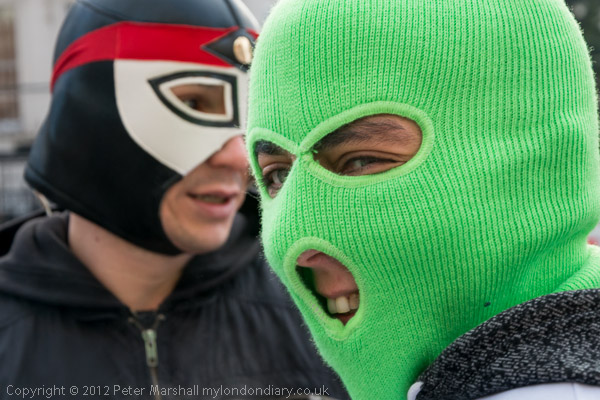
Probably the best way to describe my work on Wednesday 16th January would be varied, and that’s one of the things that attracts me to photographing protests on the streets of London. I was never quite sure what I would find or what would happen, and every protest brought its own problems in terms of photography, and also sometimes in how to write about them.
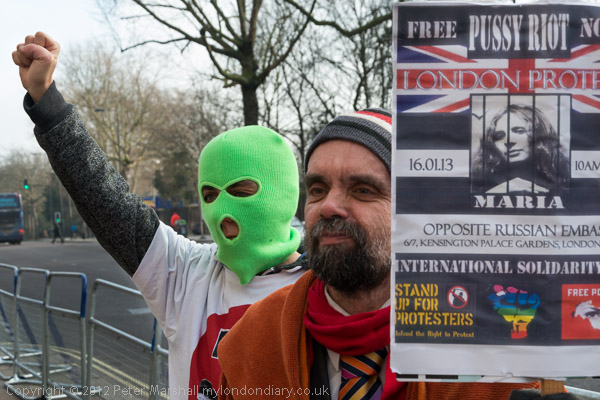
I started the day with Pussy Riot, or rather with protesters in solidarity with them on an International Day of Solidarity with Maria Alyokhina, attending a court hearing today over her plea for her sentence to be suspended so she can raise her son until he is 14. She was one of three members of Russian punk band Pussy Riot sentenced for their performance of an anti-Putin “punk anthem” in a Moscow Orthodox cathedral in February, and was sent to a prison camp in Siberia for two years.
I had expected rather more protesters than the small group I found there, as the case had attracted considerable publicity, but perhaps it was too early on a cold January morning to attract many. It isn’t either a very good place to protest, as the actual embassy is hidden away a few yards down a private road roughly opposite where protests (and photographer) are strictly forbidden. But I also left fairly promptly after the time set for the start of a protest, and numbers may have grown later.
Pussy Riot London Solidarity Demonstration
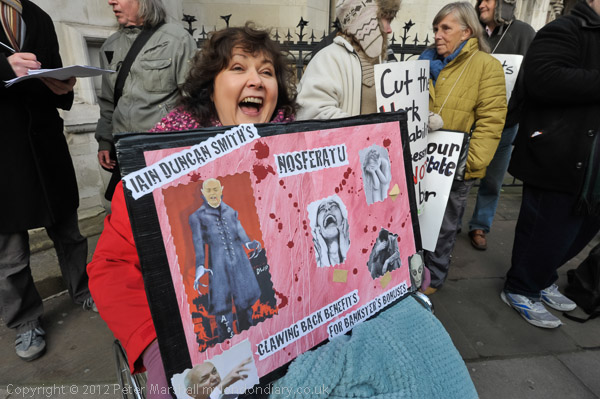
There were more people, including quite a few that I knew, at a rally outside the Royal Courts of Justice on the Strand. Many were disabled, with a few in wheelchairs, but more who have mental health conditions, along with a number of pensioners, trade unionists from the court branch of the PCS and other supporters and the protest was organised by disabled activist groups including DPAC and the Mental Health Resistance Network.
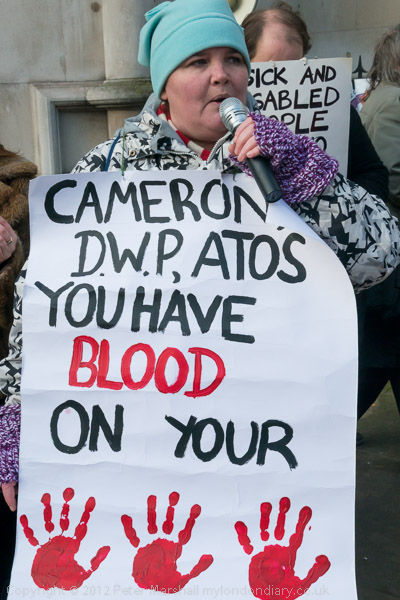
Inside the court a tribunal was hearing a judicial review into Work Capablility Assessments on the grounds they violate the Equality Act, not being accessible for those with mental health conditions, and several of those speaking at the rally had personal stories to tell of how they had suffered as a result.
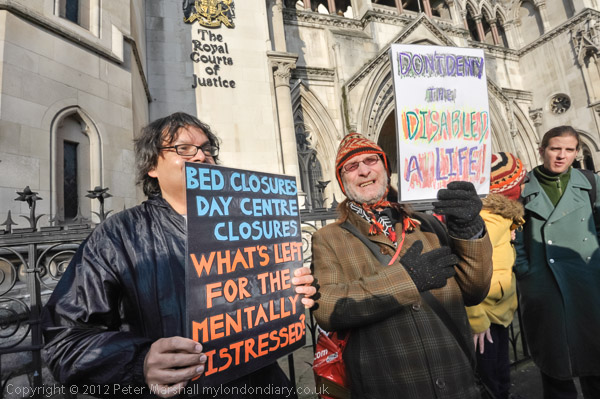
Mental health conditions are often spasmodic, which may result in claimants on a good day not seeming very ill and on a bad day being unable to attend an assessment – which results in them being automatically judged fit for work. Few of those carrying out the tests had sufficient knowledge and experience in the area of mental health to be able to sensibly conduct the assessment, and medical records were often not taken into consideration.
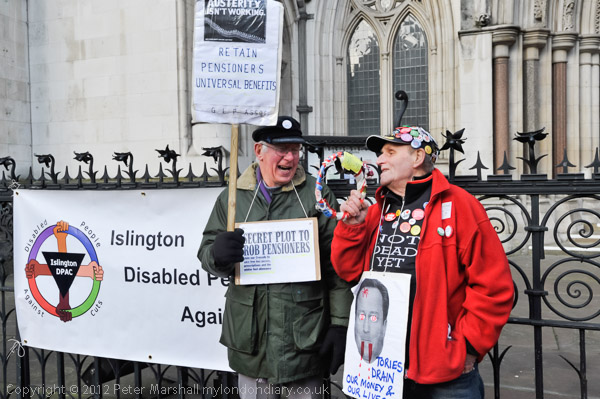
It seems totally ridiculous for benefits which people need because of their medical conditions not to be assessed on the basis of reports by the doctors who have examined and know their patients, but we have a system that instead tries to deny benefits on the basis of often arbitrary ‘tests’ by unqualified staff.
Equality Protest Against ATOS Work Assessments
Another protest was taking place outside the courts, which I hadn’t been aware of, and it had a very different atmosphere which I found rather chilling.
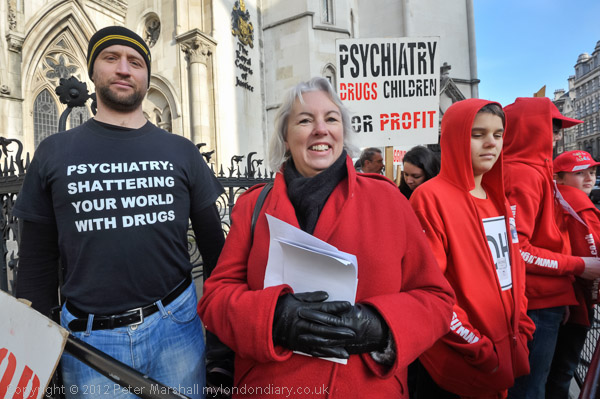
There was something very organised about it, with people dressed in red and all the placards carefully printed and it lacked the kind of spontaneity. Although it was a protest against the use of drugs to treat mental illness, some of those taking part gave the impression that they had been drugged.
Drugs are certainly misused in the treatment of people with mental health issues, though I think there are occasions when they are an important part in improving people’s health. And certainly they are over-used as a way to avoid treating the real causes of some people’s problems which come largely from poverty, lousy housing and terrible jobs. But there seemed to be something very wrong in some of the assertions that were being made.
I hadn’t heard of the Citizens Commission on Human Rights, and was not really surprised when I looked it up on the web and found it described on Wikipedia as ‘a Scientology front group which campaigns against psychiatry and psychiatrists‘ established in 1969 by the Church of Scientology.
And as I wrote when I put these pictures on line:
it seems unfair to dismiss all of psychiatry as their banner did as ‘Junk Science and Dangerous Drugs‘ and I find it impossible from personal experience to deny the existence of medical conditions such as depression – or to dismiss the utility of some drugs in the treatment of mental conditions.
Stop Psychiatry Drugging Kids